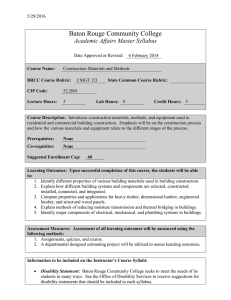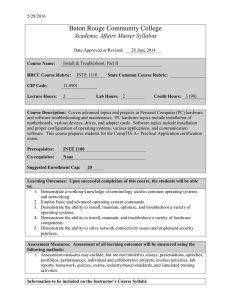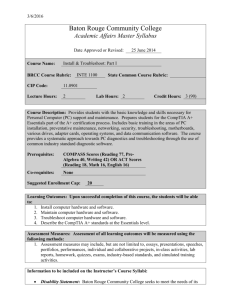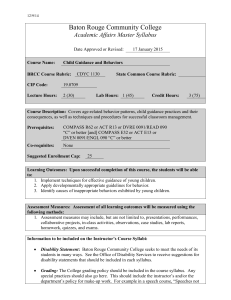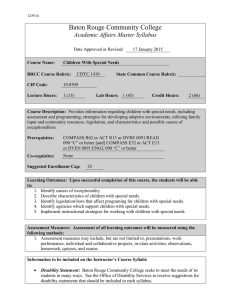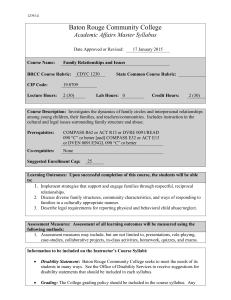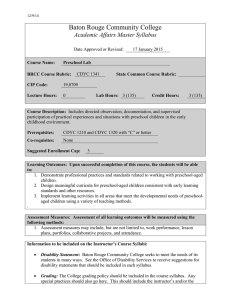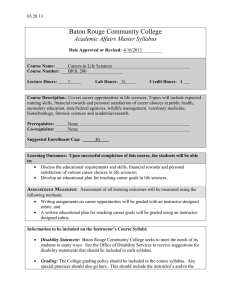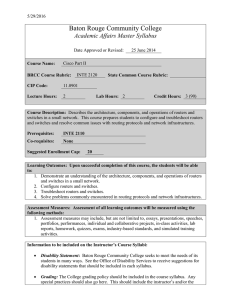Baton Rouge Community College Academic Affairs Master Syllabus
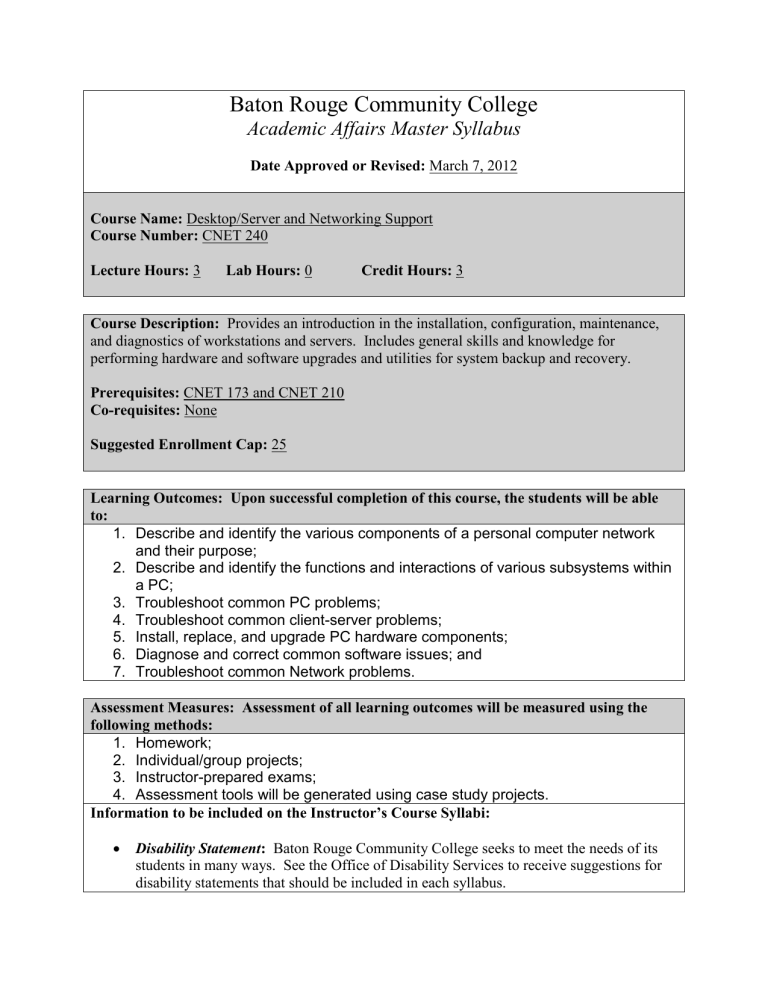
Baton Rouge Community College
Academic Affairs Master Syllabus
Date Approved or Revised: March 7, 2012
Course Name: Desktop/Server and Networking Support
Course Number: CNET 240
Credit Hours: 3 Lecture Hours: 3 Lab Hours: 0
Course Description: Provides an introduction in the installation, configuration, maintenance, and diagnostics of workstations and servers. Includes general skills and knowledge for performing hardware and software upgrades and utilities for system backup and recovery.
Prerequisites: CNET 173 and CNET 210
Co-requisites: None
Suggested Enrollment Cap: 25
Learning Outcomes: Upon successful completion of this course, the students will be able to:
1. Describe and identify the various components of a personal computer network and their purpose;
2. Describe and identify the functions and interactions of various subsystems within a PC;
3. Troubleshoot common PC problems;
4. Troubleshoot common client-server problems;
5. Install, replace, and upgrade PC hardware components;
6. Diagnose and correct common software issues; and
7. Troubleshoot common Network problems.
Assessment Measures: Assessment of all learning outcomes will be measured using the following methods:
1. Homework;
2. Individual/group projects;
3. Instructor-prepared exams;
4. Assessment tools will be generated using case study projects.
Information to be included on the Instructor’s Course Syllabi:
Disability Statement: Baton Rouge Community College seeks to meet the needs of its students in many ways. See the Office of Disability Services to receive suggestions for disability statements that should be included in each syllabus.
Grading: The College grading policy should be included in the course syllabus. Any special practices should also go here. This should include the instructor’s and/or the department’s policy for make-up work. For example in a speech course, “Speeches not given on due date will receive no grade higher than a sixty” or “Make-up work will not be accepted after the last day of class.”
Attendance Policy: Include the overall attendance policy of the college. Instructors may want to add additional information in individual syllabi to meet the needs of their courses.
General Policies: Instructors’ policy on the use of things such as beepers and cell phones and/or hand held programmable calculators should be covered in this section.
Cheating and Plagiarism: This must be included in all syllabi and should include the penalties for incidents in a given class. Students should have a clear idea of what constitutes cheating in a given course.
Safety Concerns:
In some programs this may be a major issue. For example, “No student will be allowed in the safety lab without safety glasses.” General statements such as, “Items that may be harmful to one’s self or others should not be brought to class.”
Library/ Learning Resources: Since the development of the total person is part of our mission, assignments in the library and/or the Learning Resources Center should be included to assist students in enhancing skills and in using resources. Students should be encouraged to use the library for reading enjoyment as part of lifelong learning.
Expanded Course Outline:
I. PC/Server Components
II. Diagnose and correct common software/hardware issues
III. Network Components and Types
IV. Install, replace, and upgrade PC hardware components
V. Identify common PC problems
VI. Identify common Network problems
VII. Troubleshooting Network Problems


